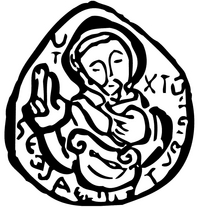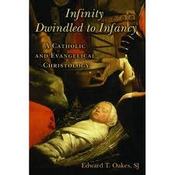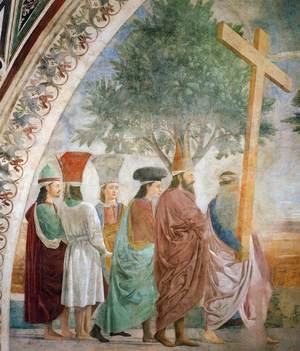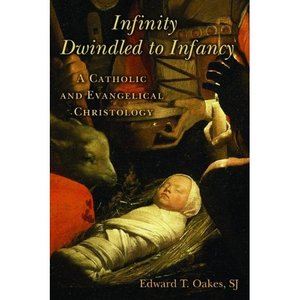Keep your eyes fixed on Jesus Christ, love him tenderly and seek always better to understand the meaning of a God who died on the Cross for the salvation of souls.
Tag: Christ
Christ or Christendom?
There is much consider as the culture many of us live in secularizes, that is, divorces us from a tangible Christian perspective, manner of being, and how we live in a world with diverse opinions. Today, we have to ask about Christ or Christendom. It is said that Saint Augustine asked, what there is of Christian among Christians is Christ. He is orienting our attention not to an idea but to a person, a meeting, an encounter, with a person. Emphatically we all have to state that to be a Christian is to be in contact with a person, Jesus the Christ. Being Christian does not mean moral norms, cultural ideology, and precepts of the Church. Morality, culture and precepts within an ecclesiology are extraordinarily important, but they are secondary in accepting Jesus Christ as Lord and Savior and adhering to Him; it is also a firm belief in heaven (salvation).
Is Christ important, or are consequences of Christ? We all have to come to terms with how we let what and who we believe in impact the way we live. That is, does Jesus Christ really mean something to you and does said belief have consequences in the manner of how you live? As a friend of Jesus Christ, what does it mean to hold to an “economy of salvation”? How do we interpret history of the Christian era? What role does true faith play in this period of history? Where are we as Christians in this history? Does eternal life with the Trinity mean anything anymore? In order to do so we have to be as objective as possible; our ideological impulses have to be put aside so as to deal with reality without rewriting the past.
Start now in developing a more coherent, mature faith in Jesus Christ and then in His Church. You ought to read the following articles to begin (remember not to form conclusions yet) your thinking on the subject:
- Gianni Valente, “Christians and Christianists” (2004)
- Benjamin Mann, “The End of ‘Christianism‘” (2013)
- start reading everything by Joseph Ratzinger.
Christ is something that is happening to me now –our engagement with Giussani’s At the Origins of the Christian Claim
 Those who follow the lay ecclesial movement, Communion
Those who follow the lay ecclesial movement, Communion
and Liberation, and attend the weekly School of Community, know that we’ve come
to end of our work on Father Luigi Giussani book, the The Religious Sense. For the
coming year we will be working on Giussani’s At the Origin of the Christian
Claim. On January 25, 2012, at the Teatro degli Arcimboldi, Milan, Father Julián
Carrón’s made a presentation of Father Luigi Giussani’s book.
is noted here: Christ is something that is happening to me now.pdf
when all man’s straining melts in the original clarity, the absolute purity of
the gaze that sees and recognizes. Et incarnatus est is contemplation and
entreaty at the same time, a stream of peace and joy welling up from the
heart’s wonder at being placed before the arrival of what it has been waiting
for, the miracle of the fulfillment of its quest. […]
Infinity Dwindled to Infancy –reviewed by George Weigel
Over the summer Jesuit Father Edward Oakes published his latest book, Infinity Dwindled to Infancy.
Exaltation of the Holy Cross
Consummatum est. It is completed — it has come to a full end. The mystery of God’s love toward us is accomplished. The price is paid, and we are redeemed. The Eternal Father determined not to pardon us without a price, in order to show us especial favor. He condescended to make us valuable to Him. What we buy we put a value on. He might have saved us without a price –by the mere fiat of His will. But to show His love for us He took a price, which, if there was to be a price set upon us at all, if there was any ransom at all to be taken for the guilt of our sins, could be nothing short of the death of His Son in our nature. O my God and Father, Thou hast valued us so much as to pay the highest of all possible prices for our sinful souls– and shall we not love and choose Thee above all things as the one necessary and one only good?
Blessed John Henry Newman
Meditation on the 12th Station
Christ begging for the heart of man
The promise made by Christ: error won’t prevail
Continue reading The promise made by Christ: error won’t prevail
Together in Christ

Image via Wikipedia
The Pope’s “Together in Christ” two day visit of Croatia was significant for several reasons. For him, and I think for all of us who were either physically in Zagreb or tuned via the media, time spent with the Croatians was monumental because it clearly exhibited the “dynamism of communion.” (What visit of a pope is insignificant, the wag asks?) In his own words, the Benedict reviews the events he and the world lived with him in this way:
- “the experience of finding ourselves together united in the name of Christ,
- the experience of being Church, which is manifested … around the Successor of Peter.
- ‘Together in Christ’ referred in a particular way to the family (… the occasion of my visit was the First National Day of Croatian Catholic Families…
It was very important for me to confirm in the faith especially these families that the Second Vatican Council called “domestic churches” (cf. Lumen Gentium, 11).
In today’s Europe [and one can extend this to the globe], nations with a strong Christian tradition have a special responsibility to defend and promote the value of the family founded on marriage, which remains decisive both within the field of education as well as in the social sphere.”
Infinity Dwindled to Infancy: A Catholic and Evangelical Christology, NEW book by Father Edward Oakes
Father Edward T. Oakes, SJ, is a professor of systematic theologian teaching at Mundelein Seminary. He is a member of the some time meeting of the Dulles Colloquium (a theological discussion group that was organized by Father Richard J. Neuhaus and Cardinal Avery Dulles) and he is a member of the ecumenical theological discussion group Evangelicals and Catholics Together. Oakes is a frequent writer for First Things and several other periodicals. Oakes is the author of Pattern of Redemption and a co-editor of The Cambridge Companion to Hans Urs Von Balthasar. There are several translations done by Father Oakes of Balthasar to note.
Benedict: to awaken hope in place of despair, joy in place of sadness, & life in place of death
 In these first days of Easter the Church rejoices in
In these first days of Easter the Church rejoices in
Christ’s resurrection from the dead, which has brought new life to us and to
our world. Saint Paul exhorts us to make this new life evident by putting to
death the things of this earth and setting our hearts on the things that are on
high, where Christ is seated at the right hand of the Father (cf. Col 3:1-2).
Having put on Christ in Baptism, we are called to be renewed daily in the
virtues which he taught us, especially charity which binds all the rest together
in perfect harmony. By living this new life we are not only interiorly
transformed, but we also change the world around us. Charity in fact brings
that spiritual freedom which can break down any wall, and build a new world of
solidarity, goodness and respect for the dignity of all. Easter, then, is a
gift to be received ever anew in faith, so that we may become a constant leaven
of life, justice and reconciliation in our world. As believers in the risen
Lord, this is our mission: to awaken hope in place of despair, joy in place of
sadness, and life in place of death. With Christ, through him and in him, let
us strive to make all things new!



